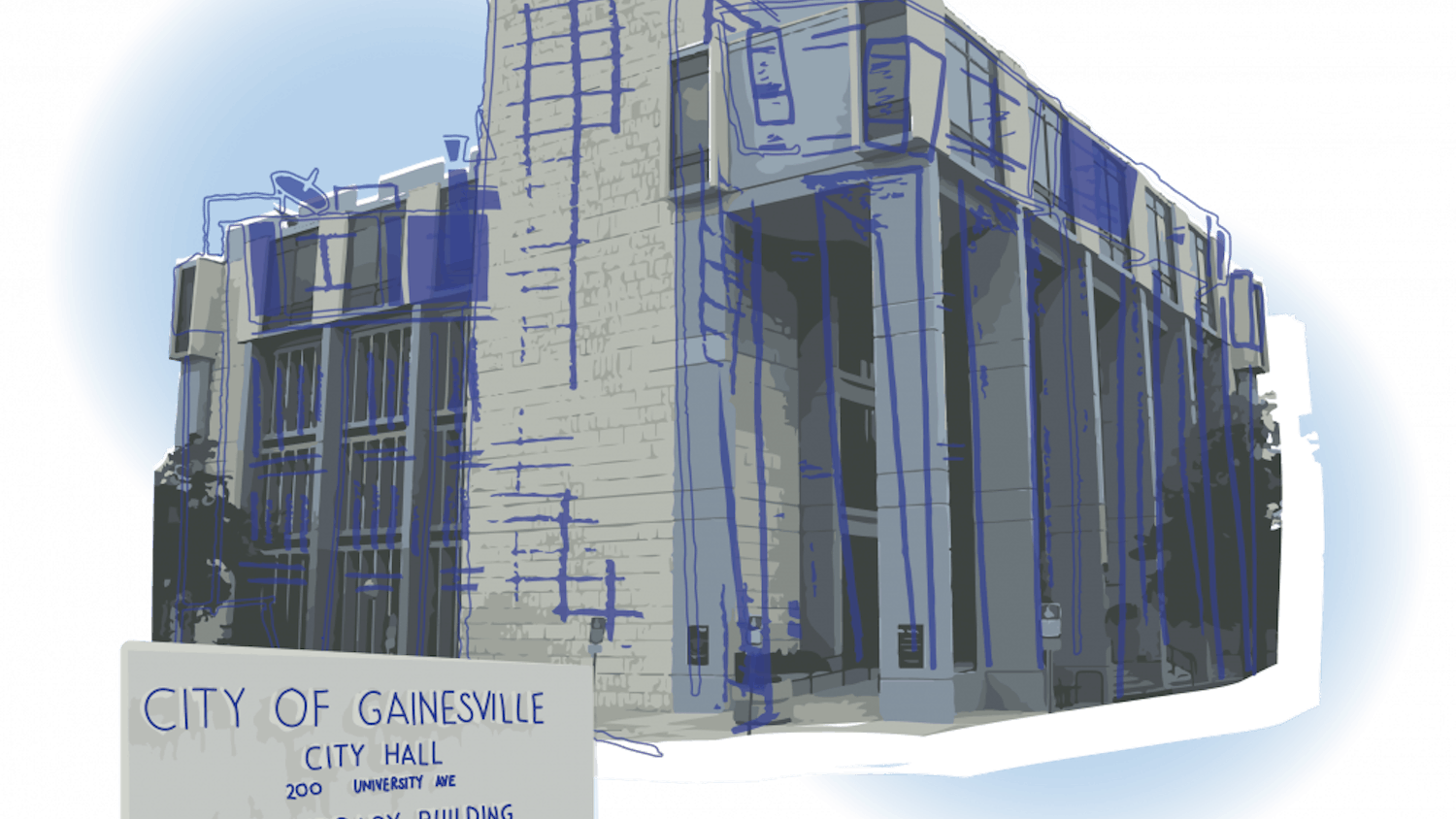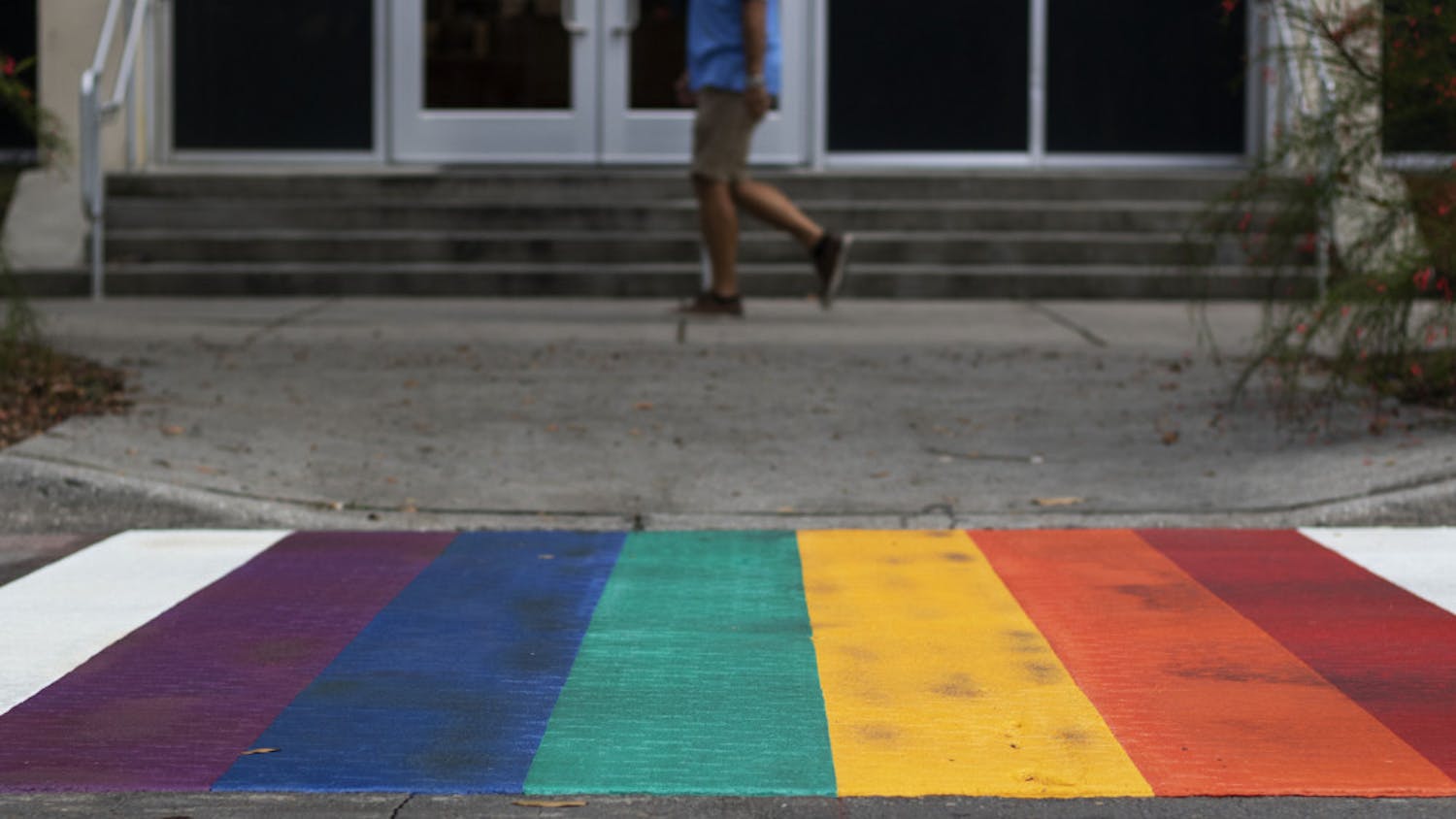When he wakes up in the morning, the thing that gets to him the most is that he hasn't always been this way.
Kyle Evers used to have two football scholarship offers to major universities. He was invloved in special communications for the National Guard. He also used to play guitar in his band, the Fallen Angels,whose CD is still in stores. Of course, that was all back before he called the streets his home.
Evers, 21, was only one member of a panel of homeless individuals from Alachua County that was brought in Tuesday night as part of a program called Faces of Poverty, put on by the UF's branch of Habitat for Humanity.
As payment for coming, the group was taken to lunch at Chipotle and a donation of about $120 was made to Alachua County poverty housing.
The purpose of the event was to dispel any myths, stereotypes or negative stigmas that surround homelessness.
"I had the same life everyone else had," said Evers, who sleeps in a tent every night with his 19-year-old wife and dreams of going to college someday.
According to the Alachua County Housing Authority's 2008 census, there were 1,365 homeless people in Alachua, making it the county with the highest percentage of homeless in Florida.
"We have to realize that these people are normal, well-balanced people whose lives have just taken a turn for the worse," said UF freshman Alexi Atkins, who is involved with Habitat for Humanity and the Golden Door, a student-run homeless shelter.
It is important to show that normal people are the majority of homeless people rather than the minority, Atkins said.
"Even though we are a student-run organization, the university won't give us any financial aid because they see it as supporting criminals and crack addicts," she said.
When 18-year-old Chance Hidalgo speaks, the youngest of the three-person panel, he looks at his feet and struggles to find words that he swears were there just moments ago.
"It hurts," said Hidalgo, who has been living in a 2002 Jeep Grand Cherokee for four months with his mom, dad and Osiris, the family's 60-pound pit bull. "Every day, it hurts."
Unlike Evers, Hidalgo was not the victim of the snowball effect, with many small decisions getting him where he is today. Homelessness was something he was born into.
He dropped out of school in ninth grade to leave town when a warrant came out for his mother's arrest.
He could leave if he wanted to, but he would worry too much about his parents, both addicted to alcohol, whom he fears could not make it on their own.
When asked if poverty was the fault of the individual or of society, the panel agreed it was a combination of the two.
"It has been the decisions of my parents that have gotten us here," Hidalgo said. "And at the same time, I know that society has to deal with the bad economy, and they can't help us either."
At the end of the program, students were given the opportunity to ask individual questions to members of the panel.
When asked what he thought the best part of living in a home was, Hidalgo did not hesitate.
"A microwave," he said. "That would be so nice."





